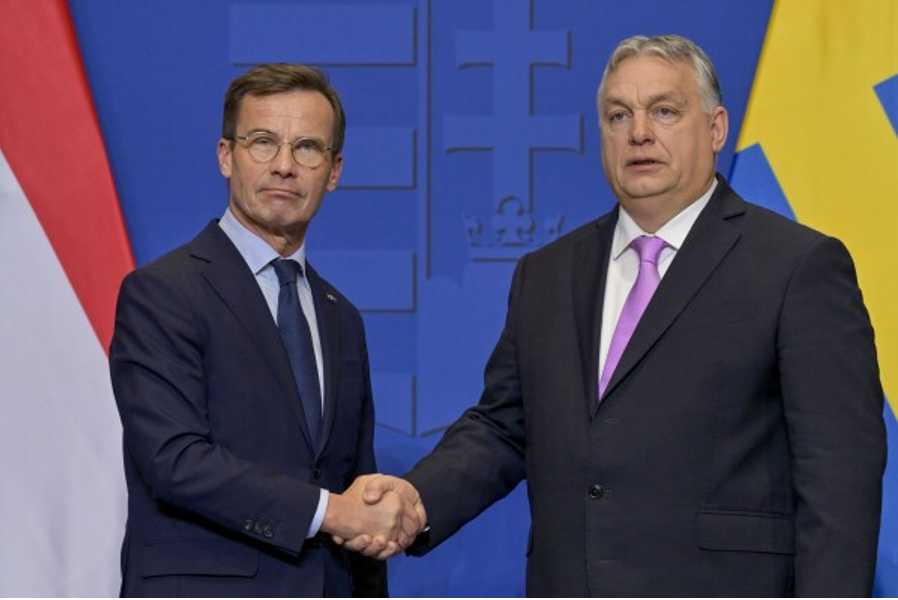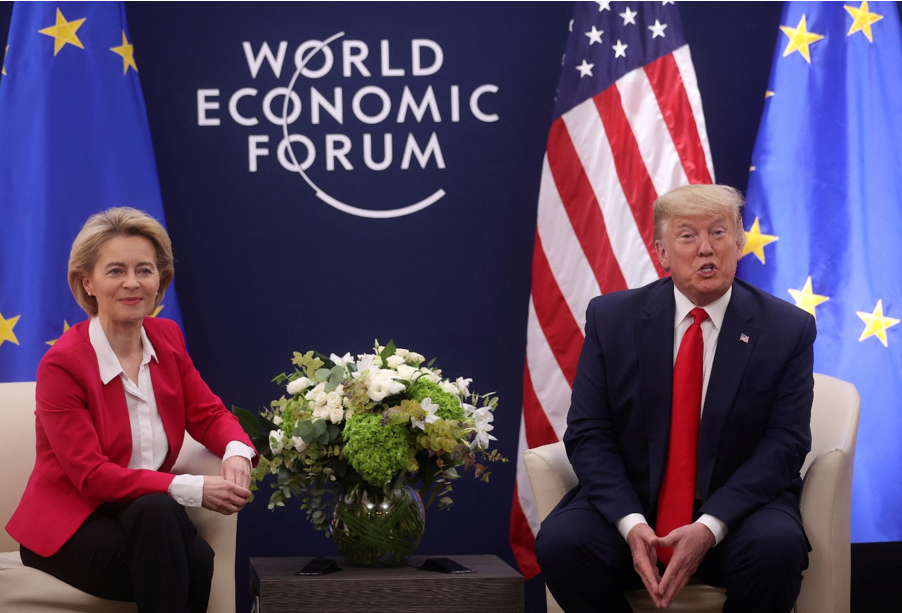Defence and Neutrality: The EU Navigates Global Conflict
By Deputy News Editor Marc Galdes
How would Europe hold up if Russia invaded tomorrow?
As Ukrainian troops on the front lines are being forced to ration ammunition and US military aid is not a guarantee anymore, Europe must be prepared to fend for itself.
The most recent win for the West has been Sweden’s approval to join NATO. Sweden is set to join the organisation after Hungary finally broke the deadlock on Sweden’s application. On 26 February, it was made official that Sweden was to become the 32nd member of NATO after Hungary’s parliament approved Sweden’s move, with 188 votes in favour and 6 votes against. Sweden’s approval to join NATO has been held up by Hungary and Turkey for over 600 days. Turkey had lifted its objections back in January and now Hungary have followed suit.
This comes a year after Finland became a member of NATO. With both Sweden and Finland as members of NATO, this makes it harder for Putin to control the Baltic Sea. Since Finland’s accession to NATO, Russia has been trying to burden the country by, allegedly, sending asylum seekers on bicycles across the border to Finland. As a result, Finland has closed its borders to Russia up until 14 April, unless this gets extended again.
Swedish Prime Minister Ulf Kristersson and Hungarian Prime Minister Viktor Orban in Budapest | Photo credit: AP Photo/Denes Erdos
For over two centuries, Sweden embraced a policy of neutrality – its last war ended in 1814. The decision to step away from neutrality and join NATO was sparked by Russia’s invasion of Ukraine in February 2022. The Swedish government further said that people should begin to prepare themselves for war - this comment later faced a lot of scrutiny as it caused a lot of panic among Sweden’s citizens.
Since the start of Russia’s invasion of Ukraine, Hungarian Prime Minister Viktor Orbán has often blocked EU aid being sent to Ukraine. Sweden has publicly scrutinised Hungary for its actions, which caused the two to quarrel. In fact, Orbán’s spokesperson Zoltan Kovacs had insulted Swedish officials for sitting on a ‘crumbling throne of moral superiority’.
Nevertheless, a few days before Sweden’s membership was confirmed, Orbán and Swedish Prime Minister Ulf Kristersson met in Budapest and declared their support for each other.
This move has taken place during a time when the future of European defence is uncertain after US Presidential Candidate Donald Trump threatened not to come to Europe’s aid if it was attacked. Trump also encouraged Russia ‘to do whatever the hell they want’ if a member of NATO does not pay its security contributions. ‘If they’re not going to pay, we’re not going to protect.’
In a statement, NATO Secretary General Jens Stoltenberg expressed how Trump's comments were extremely dangerous and put ‘American and European soldiers at risk.’ He further clarified that ‘any attack on NATO will be met with a united and forceful response.’
European Union Commissioner President Ursula Von der Leyen and US Presidential Candidate Donald Trump | Photo credit: REUTERS/Jonathan Ernst
Right now the EU has the common security and defence policy (CSDP) in place which is part of the EU’s common foreign and security policy (CFSP). The European Parliament website describes the CSDP as ‘the main policy framework through which Member States can develop a European strategic culture of security and defence, address conflicts and crises together, protect the Union and its citizens, and strengthen international peace and security.’ The EU parliament website further said that Russia’s invasion of Ukraine has ‘created further impetus for what should become an EU Defence Union.’ In the last few weeks, two CFSP implementation reports were being discussed by European leaders regarding the future of the EU Security Infrastructure.
Uncertainty over US military aid has resulted in Europe’s realisation that it now needs to carry its own weight and defend itself independently. Pan-European party Volt Europa, and others, have advocated for creating a European Army which would unite member states’ armed forces and create the world’s third-largest spender on armed forces, after the US and China. EU Parliament President Roberta Metsola responded to Trump’s threats by saying that the EU needs to ‘strengthen [its] defence industry and get practical about [its] strategic autonomy,’ when talking to POLITOCO’S Brussels Playbook However, she clarified that this would complement and not compete with NATO.
Amidst these uncertain times, European Commissioner President Ursula Von der Leyen – who has confirmed her candidacy for a second term – said that if she were to be the next Commission President then she would introduce a Defence Commissioner. Also, her party, the centre-right European People’s Party (EPP) has expressed its support for this. As things stand, there is not much information surrounding how this would work.
That being said, German Defence Minister Boris Pistorius told Welt am Sonntag in December that Europe has ‘around five to eight years to catch up – both regarding the armed forces, industry and society’.
At face value, Sweden’s NATO membership and the EU’s desire to increase security look like a win for Europe and a loss for Russia. Does this mean that Europe is prepared to defend itself?
EU member states are not in agreement
With the MEP elections right around the corner, a European Parliament Barometer report for Autumn 2023, revealed that amongst all EU member states, the EU’s defence and security, including the protection of the EU’s external borders, was only the 7th most important topic for respondents. For countries like Finland and Czechia, however, defence and security were considered to be the most important topics.
To add more chaos into the mix, French President Emmanuel Macron has publicly doubled down on the possibility of Western troops being sent to Ukraine. This has shown another rift among NATO members who have not shown support for Macron’s proposal, such as the US, UK and Germany.
French President Emmanuel Macron | Photo credit: Michael Campanella
Also, as shown above, Orbán has proven to be quite a nuisance as he has also shown his support for the Kremlin. Countries like Slovakia and Bulgaria have also shown sympathy for Putin’s cause. Ultimately, Orbán’s approval of Sweden into NATO and his agreement to contribute to the EU’s financial package for Ukraine still does not confirm that it will support Ukraine, or Europe for that matter, against Putin’s aggression.
At an EU level, a few weeks ago, according to two diplomats who spoke to POLITICO, Hungary blocked an EU statement which expressed ‘unwavering’ support for Ukraine. This statement was later released in the names of the European Council, Commission and Parliament presidents.
However, this time Hungary was not the only one causing a rift in the EU. It was reported that a neutral country expressed their doubts over the statement's wording about missiles. This country was later confirmed to be Malta after its Prime Minister Robert Abela confirmed this when addressing the press and went on to criticise the EU for not ‘emphasising enough on peace’. The other neutral countries in the EU are Austria and Ireland.
As tensions rise, neutral countries, like Malta, seem to be facing a problem with trying to maintain neutrality whilst Europe continues to express its ‘unwavering’ support for Ukraine and its plans to strengthen its defence industry.
Although neutral, Ireland has not expressed major objections to the EU’s intention to strengthen security. Last month Taoiseach Leo Varadkar was the first Taoiseach to travel to Munich to attend the 60th annual Munich Security Conference. A press release by the government said that Varadkar’s presence was due to the current security situation in Eastern Europe, Gaza and other parts of the world, and he wanted to discuss Ireland’s role in this from a neutral position.
Europe is not ready to let America go
Ukrainian soldier | Photo credit: Anadolu Agency
The EU is looking to take care of itself, however, it is still relying on the US to offer military support to Ukraine which is vital for Europe’s defence.
After once again delays caused by Hungary, in January, the EU came to an agreement to offer Ukraine a €50 billion financial package until 2027, to keep Ukraine’s economy afloat. Even though this was praised as being a positive move, the financial contribution is actually minor and does not contribute to military aid. The International Monetary Fund has estimated that Ukraine will need about $42 billion in financing for 2024 alone.
The EU is relying on Washington to come to an agreement on the potential $60 billion in military assistance to Ukraine. However, as Congress continuously fails to come to an agreement, Ukraine is rationing ammunition on the front lines. Ukrainian President Volodymyr Zelenskyy has been putting a lot of pressure on the US insisting that Ukraine needs this military aid by the end of March.





